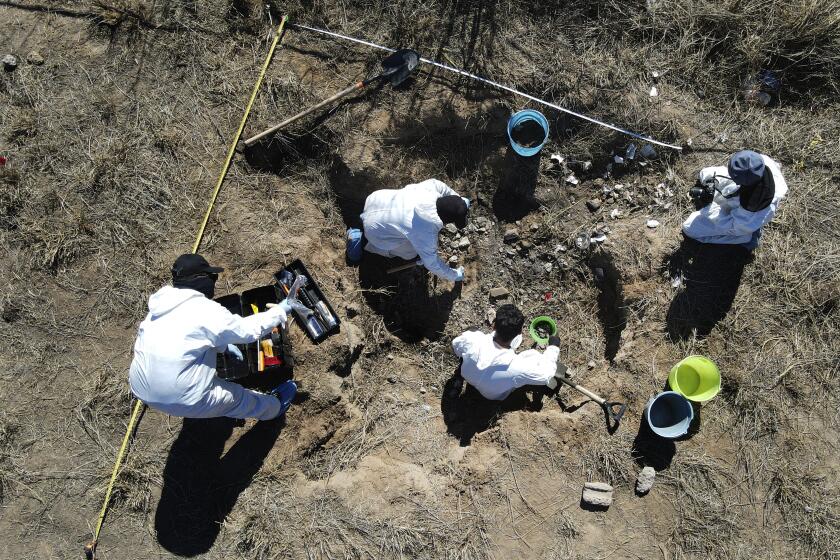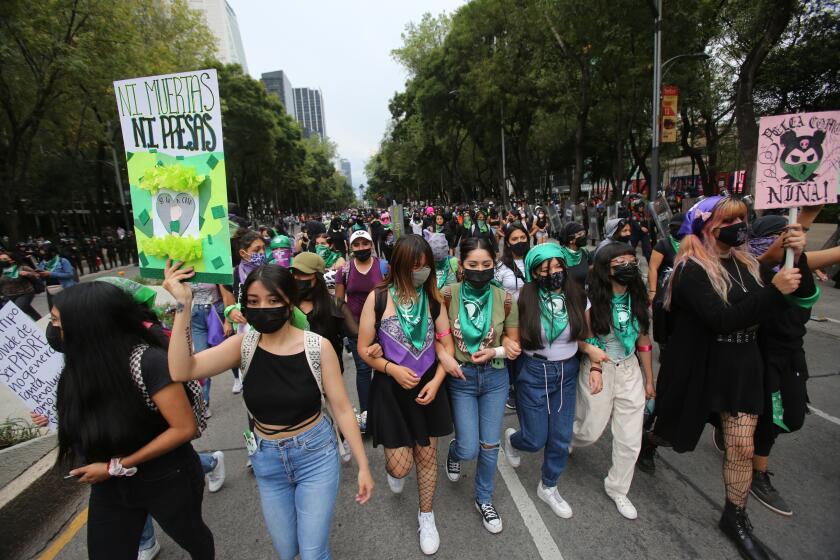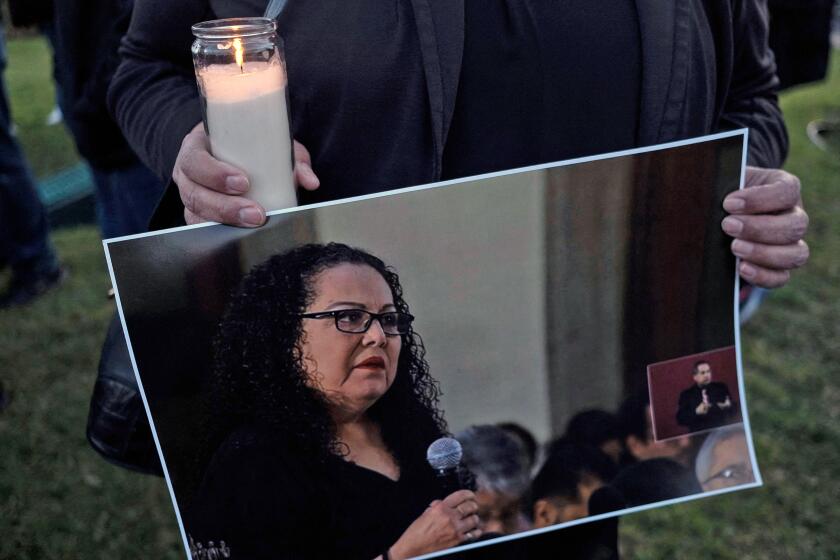Accused killers of Tijuana journalist thought he had reported on criminal group, official says
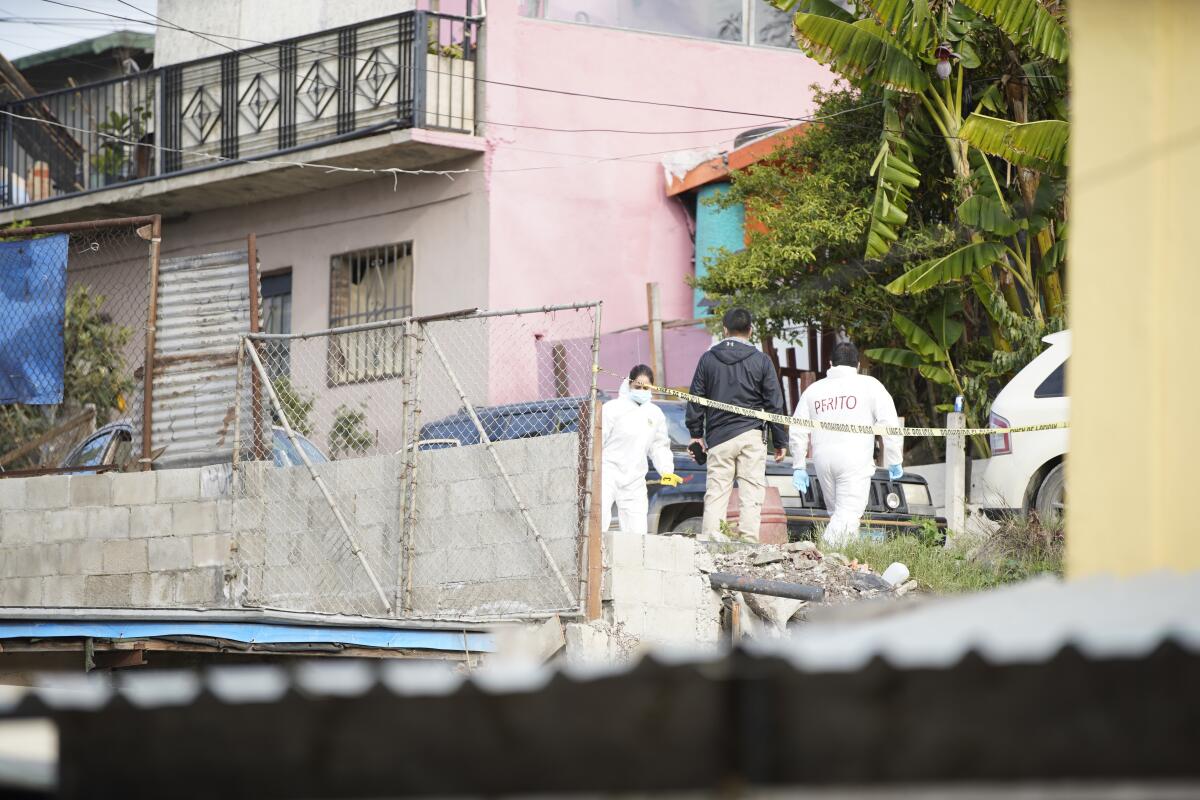
- Share via
TIJUANA — Communications shared among those accused of planning the murder of Tijuana photojournalist Margarito Martínez Esquivel show that the group mistakenly believed he was responsible for publishing information that exposed a violent criminal network, according to the Baja California Attorney General.
Fresh details about the case were first reported by the news organization Punto Norte, and Atty. Gen. Ricardo Iván Carpio gave an update Monday.
Carpio confirmed that one of the people allegedly responsible for killing Martínez is a U.S. citizen, among other details first reported by Punto Norte.
Near Nuevo Laredo, forensic technicians sift through bits of human remains in an effort to identify some of Mexico’s nearly 100,000 missing.
Martínez, who covered crime and security issues in Tijuana, was fatally shot Jan. 17 outside his home as he left for work. A month earlier, he had made an official complaint about threats he had received while working as a journalist and was in the process of seeking protection under a government program.
He worked as a “fixer” assisting international news outlets, including the Los Angeles Times and the San Diego Union-Tribune, as well as the BBC.
During a news conference Monday afternoon, Carpio said Martínez could have been killed because of his professional work as a journalist “and also because he made these people uncomfortable.”
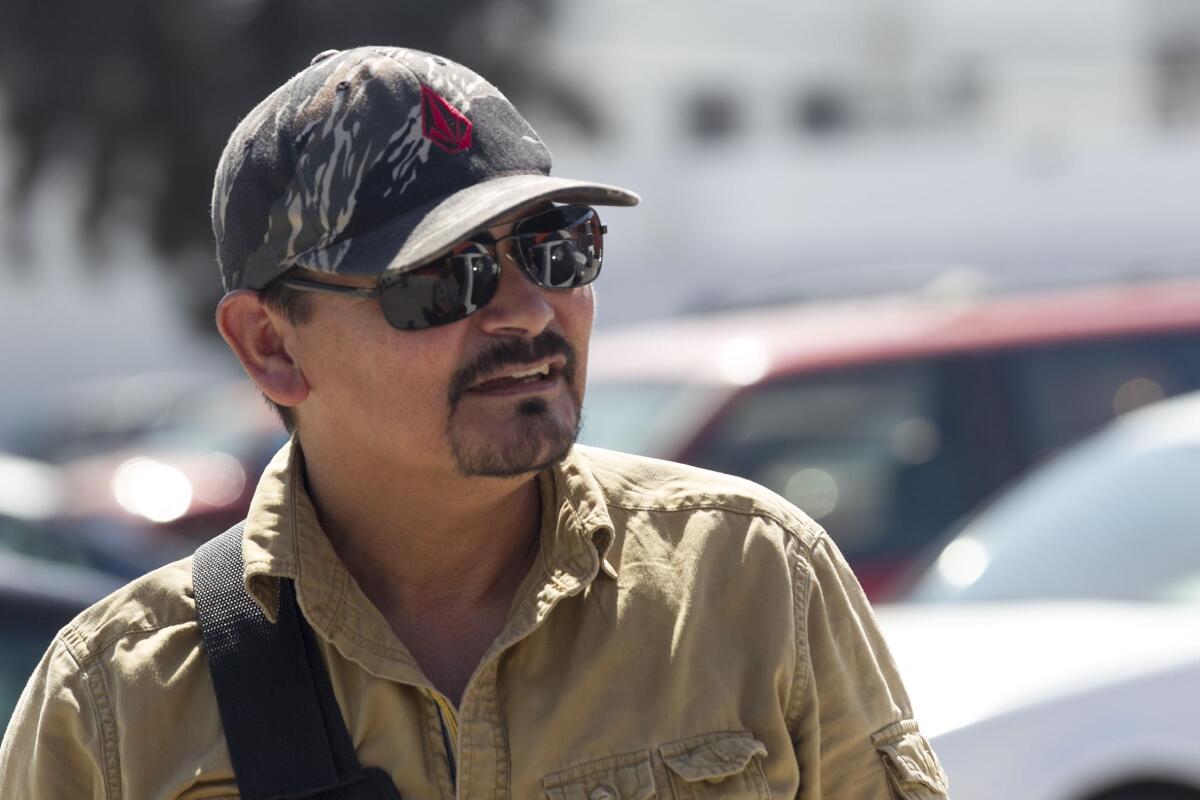
“Yes, there was disagreement on the part of the aggressors regarding the work that Margarito had been carrying out, because at some point they thought that it was related to various circumstances that had been occurring against the criminal group — by deduction of the participants themselves — and this also includes the possibility that they considered that Margarito Martínez could be the person behind certain publications in various portals and media,” Carpio said.
Texts, WhatsApp messages, voice recordings and videos sent between several of the people detained by the Baja California Attorney General’s office show that the criminal group began planning the attack on Martínez immediately after the weekly investigative news magazine Zeta published a report on the group, according to Punto Norte.
During a search of a home conducted Feb. 25, prosecutors obtained a cellphone that showed communications between José Heriberto N., alias “El Huesos,” and Christian Adan N., alias “El Cabo 16.” The communications also included a man named Adrián Nicolás, alias “El Uber,” who is a 24-year-old U.S. citizen, according to Carpio.
A hospital in the southern state of Guerrero refused to perform an abortion on a 9-year-old rape victim, despite a landmark ruling from Mexico’s Supreme Court.
In Mexico, the last name of a defendant is not revealed unless the person is found guilty in court.
Evidence shows that the group that planned the murder waited outside the photojournalist’s home, paid 20,000 pesos (about $939) to the person who pulled the trigger and made their getaway on a motorcycle.
Later, they shared video among themselves of Martínez being killed and celebrated erroneous news reports floated by the Tijuana police that the 49-year-old photojournalist had been in a drunken brawl with a neighbor.
Three suspects are arrested in the slaying of Lourdes Maldonado López, the second journalist killed in a week in Tijuana last month.
Punto Norte reported that the group discussed sending spies to Martínez’s wake to find out what his friends and family were saying about his murder.
Carpio said investigators have discovered Martínez’s missing cellphone, which was taken from the scene of the crime. When asked if that evidence was important to the investigation, Carpio responded that all evidence in the case is important, but some pieces “have greater relevance in our intelligence, in our understanding and treatment that we have given to this investigation.”
The vote is being hailed as a major triumph for workers in a country where union leaders and employers have long colluded to keep wages low.
He said the firearm used to murder Martínez has not been recovered.
Ten suspects were detained on Feb. 25 during a joint federal and state operation that involved search warrants being executed at six locations. David López Jiménez, alias “Cabo 20,” the leader of the criminal group, was not among those arrested. Carpio said the investigation is ongoing.
Carpio said each defendant faces 60 years in prison if convicted.
More to Read
Sign up for Essential California
The most important California stories and recommendations in your inbox every morning.
You may occasionally receive promotional content from the Los Angeles Times.
